From the moment, I became politically active I had always voted Labour, my father had voted Labour and together we watched the news and programmes like Question Time discussing the issues of the day. When I started running my own business I briefly played with the idea of switching to the Tories. Dad sat me down, gave me a solid grounding on their values, ideologies and the horrendous implications to the world and I never wavered again.
Years later, during another general election, I did my usual and automatically voted Labour. This time its candidate for leadership was a young Tony Blair. Little would I know that his politics and subsequent legacy in power would be so toxic it would compel me to stop voting altogether.
Looking back, I could have tried the Greens or Liberals who had policies I liked but something switched inside of me, my political nativity had gone and I suddenly realised that as Malcolm X once said, the Conservatives and Liberals were like the Wolf and the Fox. I was tired of playing sheep and choosing either.
As I had become more politically literate, I started to hate the fact that there is no political party totally committed and focused on our community concerns. I despised the fact that we always had to ‘demand’ to fight for our rights through appealing to the kind nature of a larger body. I fully support the Labour Party’s new leader, Jeremy Corbyn but even their campaign slogan - ‘For the many, not the few’ slogan reminds me that I, as an African in the UK, am of the few.
I, like many of my peers am not really interested in class based explanations that ignore racism and sexism, I ultimately want to support (or recreate If I had the energy) a party that safeguards the interest of my family, friends and community against nationalist movements formed by hostile elements within the majority ethnic population. For example, in London there has been a rise in knife crime leading to the deaths of young African boys. The long term solution is not tougher prison sentencing as the Conservative-UKIP coalition advocates, it not even more policing, community policing or more youth clubs. An African British focused party would know that this issue requires a more holistic approach which includes education, employment, housing and creating better sustainable life opportunities.
But with the demise of fringe, single issue (and occasionally toxic racist) parties like UKIP, where are the UK’s truly anti-racist parties? When the Ligali Party (LP) set up in 2003, after a debate on the merits of ‘tactical voting’ with Operation Black Vote’s Simon Wolley, it was the first explicitly, independent Pan African political party in African British history capable of running in general elections. You would never have known this by the response of the media. The racist tabloids did not want the general public to know the party existed in case it ever received votes from the two million African people in the UK, whilst the ‘black’ newspapers, politicians and radio presenters on mainstream and media channels refused to support or even talk about Ligali because they were too scared of being exposed as community ‘coconuts’ and losing their ‘radical negro’ position within the establishment.
So what was the Ligali Party’s mission? Well it wasn’t ‘black’ nationalism, a populist position adopted by a number of more established community organisations who sought to lead the African British community. Nor was it liberalism, the Ligali Party made clear its Africentric roots and organic agenda of organised resistance fusing both politics with spiritual direction (it did not directly attack religions but it also did not promote them).
Instead the Ligali Party embraced the duality of most Africans to be both Christian and African centred, Muslim and community focused. Embracing intellectualism which did something more than talk, it worked to place social justice at the core of its ethos by offering a home of true Pan African unity for Africans with Continental and Diasporic heritage irrespective of their spiritual conviction. We believed that in transforming society to better protect and serve African-Britons, as one of its most vulnerable, disadvantaged communities, Britain itself would be transformed into a true democratic, non-racist and non-sexist society that benefits all by embracing human rights for all.
The plan was simple, instead of simply marching on streets for ever demanding change, the Ligali Organisation in tandem with the Ligali Party would apply pressure both outside and within. The Ligali organisation would raise consciousness and teach self-determination by responding to Afriphobia in a creative, intellectual manner whilst through the Party it was hoped that Ligali could secure a few members in parliament focused on addressing minority ethnic concerns. We would be different from other ‘BME/BAMER’ politicians by championing the concerns of African Britons in society without having to make the compromises that so many politicians who regard themselves as just happening to be ‘black’ feel forced to do when part of a body where they are not within the ethnic majority.
The Ligali Party had plans to address education, self-employment, health, community development but most importantly it would place at the top of its agenda the principles of addressing Afriphobia (anti-racism), inequality, criminal justice and reparatory justice for Maafa without compromise. The party had no aspirations to run the country ‘Obama’ style, it just wanted to create a safe space for African people living in the UK whilst supporting others across the world with its human rights agenda. To do this Britain would have to move to a parliamentary system like that in Holland which uses proportional representation. It would also be good if each party was funded from taxes to eliminate the huge advantage the elite have in accessing campaign funds.
I say this from experience. Sadly despite the African British community having the collective resources to finance such a party, because few of our two million plus constituents knew about it, the Ligali Party had to work with extremely little. Within a meagre budget of £nil the Ligali Party still managed to pay its annual statutory fees and file returns for a decade, but alongside this it was also actively seeking responsible candidates without egos fuelled by sexist, racist or ideologically narrow interest. Tragically division within the Pan African community based on male egos fearing a loss of status exploiting petty African v African Caribbean rivalries meant the party was quietly deregistered without ever running for election. Instead of coming together to make tangible change the African British community was once again left defenceless from physical (microagressions on a day to day basis) and political (parliamentary) attacks.
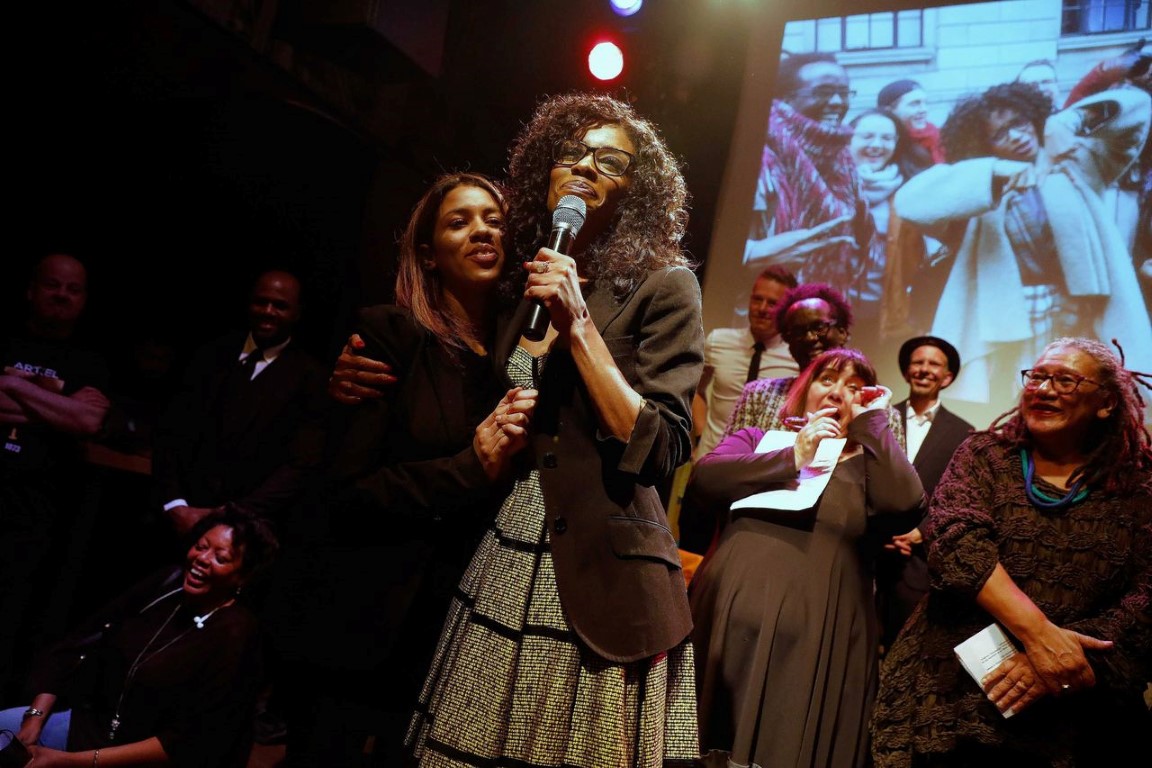
When a similar situation occurred in Holland, with African and Muslim migrants facing an onslaught of Afriphobic and Islamophobic attacks, something else occurred. Their electoral council allowed 28 parties to take part in the general election which occurred on March 15. This mature approach towards inclusive politics means that coalition governments are the norm, not the exception and everyone has the opportunity to shape and create national laws. Out of the existing Labor party and mainstream media emerged two parties that are both pro-immigration and prioritise equality for all, they are DENK and Artikel 1.
DENK (meaning “equal” in Turkish and “think” in Dutch) was founded in 2015 by Tunahan Kuzu and Selçuk Öztürk both Turkish-Dutch. Its policies call for the rejection of the term and ideas calling for the ‘integration’ of minority communities and instead advocates for their ‘acceptance’ supported by the creation of a Ministry of Widespread Acceptance. It also champions a racism register, which compels listed offenders to attend anti-discrimination education. DENK which robustly challenges islamophobia has been accused of being softer against Afriphobia and sexism.
Artikel 1’s name is a reference to the Dutch Constitutions pledge that ‘All persons in the Netherlands shall be treated equally in equal circumstances... [and that] Discrimination on the grounds of religion, belief, political opinion, race or sex or on any other grounds whatsoever shall not be permitted.” The party was founded by former DENK member and TV host, Sylvana Simons who is African-Dutch left DENK after being dissatisfied with the manner in which the party’s founding members responded to the racist attacks and threats she was subjected to when she decided to enter the world of politics. She said; “You can’t be black, female, politically involved and try to shape the society you live in without angering some people.”
Simons was not exaggerating and had to be placed under police protection as a result of receiving mass online abuse including over 40,000 threatening messages. The Dutch government attempted to address some of the Afriphobic assaults after songs and memes appeared one with her face superimposed on the image of an enslaved African woman who had been lynched. However as Simons states;
“When you've gained wealth through slavery and colonialism, you will build courts, police and judiciary based on that system. The problem is when you say such things out loud it sounds as if everyone is being racist on purpose all the time. That's not true, but the way the society is shaped is racist and divisive.
For example, women are paid less than men for doing the same job, Muslims and non-Muslims are treated differently in courts. Children from ethnic backgrounds and lower social economic backgrounds are being underscored and excluded from making progress in elite fields. Artikel 1 wants to make people aware of these inequalities and hold government to serving them.”
However when Sylvana Simons left DENK to form Artikle 1 her message was seen by many as becoming diluted. The support she attracted from the feminists Anja Meulentbelt and Gloria Daisy Wekker, saw her party characterised as one that relegated issues of racism in favour of gender and sexual orientation (Anja Meulentbelt is European and seen as a leading feminist whilst Gloria Daisy Wekker, is African-Surinamese Dutch and recognised as an expert on issues of gender and sexuality inequality). As a result whilst DENK emerged from the election with three votes, Artikle 1 failed to secure a single seat. If they had stayed together and worked out their problems then many believe it is likely that Sylvana Simons would have secured a seat in parliament which would have progressed both anti-racist (addressing Afriphobia & Islamophobia) and pro-feminist (addressing misogyny and homophobia) causes.
The Pan African community in Britain can learn a lot from this. African Britons are currently fractured into various groups, African, Caribbean, Somali, ‘Mixed’, Muslim, Christian, Traditional Spiritualist, Womanist, Youth, Elders, Feminist, ‘ManAfricanist’, ‘Blacktivist’ and LGTB. The truth is, all these pseudo ‘black’ groups share the same social justice concerns over Afriphobia (‘anti-black’ racism), inequality and discrimination. If there is one output of the International Decade for People of African Descent it is that we recognise ourselves as a united African family and organise politically to imagine and construct a better world.
That is, one with a future not only for ourselves, but for the children who must inherit the mess of today’s generation that gave the world the legacy of Maafa, globalisation, terrorism, Brexit and Trumpism. Please, don’t agonise or just theorise, do something – even if it’s supporting the election of a genuine half-way solution whilst working to build a coalition committed to something better.
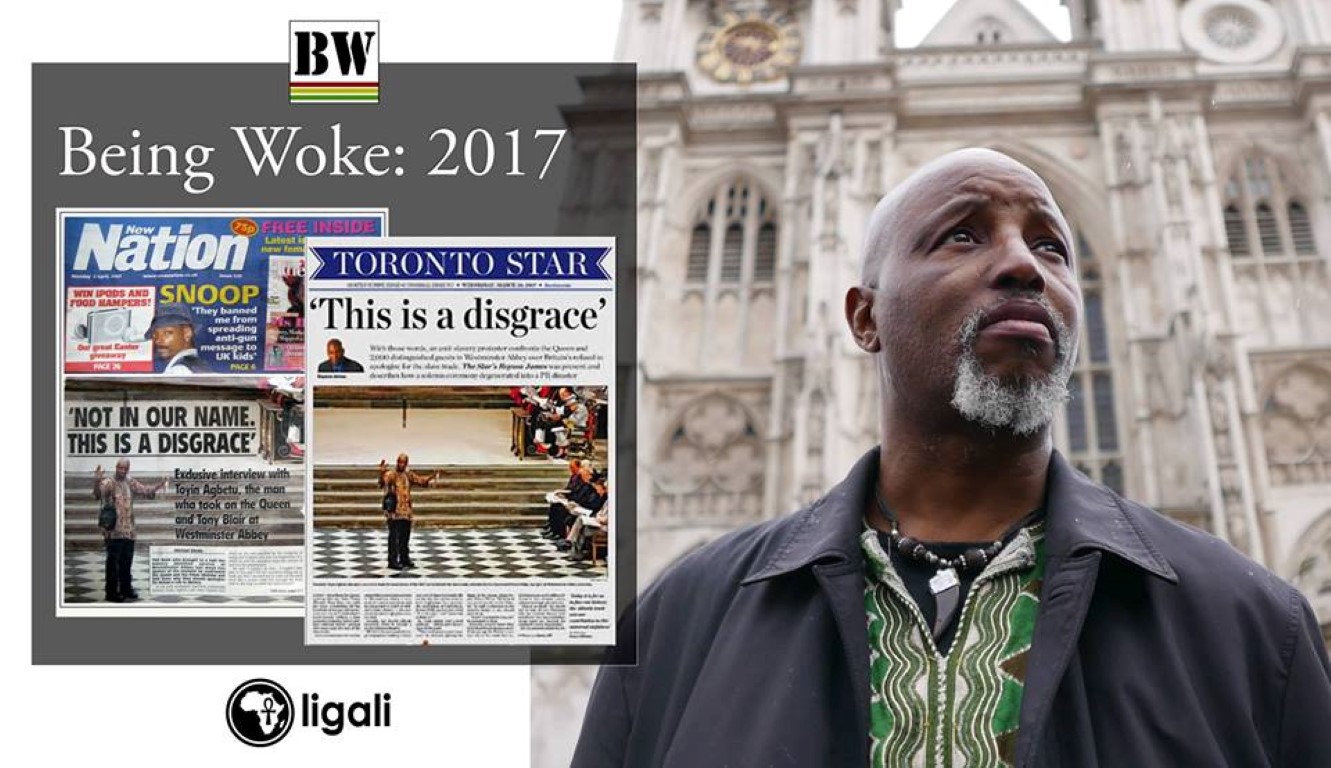
External Links
The newbies of the Dutch election: six first time partiesLigali Party Registration Details – Electoral CommissionSylvana Simons: Racism is accepted in the Netherlands6 most eyecatching fringe parties in the Dutch electionDutch race hate row engulfs presenter Sylvana Simons
Being Woke 2017
Years later, during another general election, I did my usual and automatically voted Labour. This time its candidate for leadership was a young Tony Blair. Little would I know that his politics and subsequent legacy in power would be so toxic it would compel me to stop voting altogether.
Looking back, I could have tried the Greens or Liberals who had policies I liked but something switched inside of me, my political nativity had gone and I suddenly realised that as Malcolm X once said, the Conservatives and Liberals were like the Wolf and the Fox. I was tired of playing sheep and choosing either.
As I had become more politically literate, I started to hate the fact that there is no political party totally committed and focused on our community concerns. I despised the fact that we always had to ‘demand’ to fight for our rights through appealing to the kind nature of a larger body. I fully support the Labour Party’s new leader, Jeremy Corbyn but even their campaign slogan - ‘For the many, not the few’ slogan reminds me that I, as an African in the UK, am of the few.
I, like many of my peers am not really interested in class based explanations that ignore racism and sexism, I ultimately want to support (or recreate If I had the energy) a party that safeguards the interest of my family, friends and community against nationalist movements formed by hostile elements within the majority ethnic population. For example, in London there has been a rise in knife crime leading to the deaths of young African boys. The long term solution is not tougher prison sentencing as the Conservative-UKIP coalition advocates, it not even more policing, community policing or more youth clubs. An African British focused party would know that this issue requires a more holistic approach which includes education, employment, housing and creating better sustainable life opportunities.
But with the demise of fringe, single issue (and occasionally toxic racist) parties like UKIP, where are the UK’s truly anti-racist parties? When the Ligali Party (LP) set up in 2003, after a debate on the merits of ‘tactical voting’ with Operation Black Vote’s Simon Wolley, it was the first explicitly, independent Pan African political party in African British history capable of running in general elections. You would never have known this by the response of the media. The racist tabloids did not want the general public to know the party existed in case it ever received votes from the two million African people in the UK, whilst the ‘black’ newspapers, politicians and radio presenters on mainstream and media channels refused to support or even talk about Ligali because they were too scared of being exposed as community ‘coconuts’ and losing their ‘radical negro’ position within the establishment.
So what was the Ligali Party’s mission? Well it wasn’t ‘black’ nationalism, a populist position adopted by a number of more established community organisations who sought to lead the African British community. Nor was it liberalism, the Ligali Party made clear its Africentric roots and organic agenda of organised resistance fusing both politics with spiritual direction (it did not directly attack religions but it also did not promote them).
Instead the Ligali Party embraced the duality of most Africans to be both Christian and African centred, Muslim and community focused. Embracing intellectualism which did something more than talk, it worked to place social justice at the core of its ethos by offering a home of true Pan African unity for Africans with Continental and Diasporic heritage irrespective of their spiritual conviction. We believed that in transforming society to better protect and serve African-Britons, as one of its most vulnerable, disadvantaged communities, Britain itself would be transformed into a true democratic, non-racist and non-sexist society that benefits all by embracing human rights for all.
The plan was simple, instead of simply marching on streets for ever demanding change, the Ligali Organisation in tandem with the Ligali Party would apply pressure both outside and within. The Ligali organisation would raise consciousness and teach self-determination by responding to Afriphobia in a creative, intellectual manner whilst through the Party it was hoped that Ligali could secure a few members in parliament focused on addressing minority ethnic concerns. We would be different from other ‘BME/BAMER’ politicians by championing the concerns of African Britons in society without having to make the compromises that so many politicians who regard themselves as just happening to be ‘black’ feel forced to do when part of a body where they are not within the ethnic majority.
The Ligali Party had plans to address education, self-employment, health, community development but most importantly it would place at the top of its agenda the principles of addressing Afriphobia (anti-racism), inequality, criminal justice and reparatory justice for Maafa without compromise. The party had no aspirations to run the country ‘Obama’ style, it just wanted to create a safe space for African people living in the UK whilst supporting others across the world with its human rights agenda. To do this Britain would have to move to a parliamentary system like that in Holland which uses proportional representation. It would also be good if each party was funded from taxes to eliminate the huge advantage the elite have in accessing campaign funds.
I say this from experience. Sadly despite the African British community having the collective resources to finance such a party, because few of our two million plus constituents knew about it, the Ligali Party had to work with extremely little. Within a meagre budget of £nil the Ligali Party still managed to pay its annual statutory fees and file returns for a decade, but alongside this it was also actively seeking responsible candidates without egos fuelled by sexist, racist or ideologically narrow interest. Tragically division within the Pan African community based on male egos fearing a loss of status exploiting petty African v African Caribbean rivalries meant the party was quietly deregistered without ever running for election. Instead of coming together to make tangible change the African British community was once again left defenceless from physical (microagressions on a day to day basis) and political (parliamentary) attacks.

Sylvana Simons, founder of Artikel1 speaks in cafe- restaurant Dauphine in Amsterdam / Photo: Bas Czerwinski (ANP)
Coalition building is still possible
When a similar situation occurred in Holland, with African and Muslim migrants facing an onslaught of Afriphobic and Islamophobic attacks, something else occurred. Their electoral council allowed 28 parties to take part in the general election which occurred on March 15. This mature approach towards inclusive politics means that coalition governments are the norm, not the exception and everyone has the opportunity to shape and create national laws. Out of the existing Labor party and mainstream media emerged two parties that are both pro-immigration and prioritise equality for all, they are DENK and Artikel 1. DENK (meaning “equal” in Turkish and “think” in Dutch) was founded in 2015 by Tunahan Kuzu and Selçuk Öztürk both Turkish-Dutch. Its policies call for the rejection of the term and ideas calling for the ‘integration’ of minority communities and instead advocates for their ‘acceptance’ supported by the creation of a Ministry of Widespread Acceptance. It also champions a racism register, which compels listed offenders to attend anti-discrimination education. DENK which robustly challenges islamophobia has been accused of being softer against Afriphobia and sexism.
Artikel 1’s name is a reference to the Dutch Constitutions pledge that ‘All persons in the Netherlands shall be treated equally in equal circumstances... [and that] Discrimination on the grounds of religion, belief, political opinion, race or sex or on any other grounds whatsoever shall not be permitted.” The party was founded by former DENK member and TV host, Sylvana Simons who is African-Dutch left DENK after being dissatisfied with the manner in which the party’s founding members responded to the racist attacks and threats she was subjected to when she decided to enter the world of politics. She said; “You can’t be black, female, politically involved and try to shape the society you live in without angering some people.”
Simons was not exaggerating and had to be placed under police protection as a result of receiving mass online abuse including over 40,000 threatening messages. The Dutch government attempted to address some of the Afriphobic assaults after songs and memes appeared one with her face superimposed on the image of an enslaved African woman who had been lynched. However as Simons states;
“When you've gained wealth through slavery and colonialism, you will build courts, police and judiciary based on that system. The problem is when you say such things out loud it sounds as if everyone is being racist on purpose all the time. That's not true, but the way the society is shaped is racist and divisive.
For example, women are paid less than men for doing the same job, Muslims and non-Muslims are treated differently in courts. Children from ethnic backgrounds and lower social economic backgrounds are being underscored and excluded from making progress in elite fields. Artikel 1 wants to make people aware of these inequalities and hold government to serving them.”
However when Sylvana Simons left DENK to form Artikle 1 her message was seen by many as becoming diluted. The support she attracted from the feminists Anja Meulentbelt and Gloria Daisy Wekker, saw her party characterised as one that relegated issues of racism in favour of gender and sexual orientation (Anja Meulentbelt is European and seen as a leading feminist whilst Gloria Daisy Wekker, is African-Surinamese Dutch and recognised as an expert on issues of gender and sexuality inequality). As a result whilst DENK emerged from the election with three votes, Artikle 1 failed to secure a single seat. If they had stayed together and worked out their problems then many believe it is likely that Sylvana Simons would have secured a seat in parliament which would have progressed both anti-racist (addressing Afriphobia & Islamophobia) and pro-feminist (addressing misogyny and homophobia) causes.
The Pan African community in Britain can learn a lot from this. African Britons are currently fractured into various groups, African, Caribbean, Somali, ‘Mixed’, Muslim, Christian, Traditional Spiritualist, Womanist, Youth, Elders, Feminist, ‘ManAfricanist’, ‘Blacktivist’ and LGTB. The truth is, all these pseudo ‘black’ groups share the same social justice concerns over Afriphobia (‘anti-black’ racism), inequality and discrimination. If there is one output of the International Decade for People of African Descent it is that we recognise ourselves as a united African family and organise politically to imagine and construct a better world.
That is, one with a future not only for ourselves, but for the children who must inherit the mess of today’s generation that gave the world the legacy of Maafa, globalisation, terrorism, Brexit and Trumpism. Please, don’t agonise or just theorise, do something – even if it’s supporting the election of a genuine half-way solution whilst working to build a coalition committed to something better.

Toyin Agbetu, Community Educator
External Links
The newbies of the Dutch election: six first time partiesLigali Party Registration Details – Electoral CommissionSylvana Simons: Racism is accepted in the Netherlands6 most eyecatching fringe parties in the Dutch electionDutch race hate row engulfs presenter Sylvana Simons
Ligali is not responsible for the content of third party sites
Being Woke 2017
Speak Out!
UKIP did, BNP did it, the SNP are it - is the African British Community ready for a progressive Pan Africanist political party which unites all from the Continent and Diaspora, Christians, Muslims and Traditional Spiritualists?Click here to speak out or read (3) comments about this article
The International Decade for People of African Descent demands that we recognise ourselves as a united family and organise politically to imagine and construct a better world for the children who must inherit the mess of today’s generation
Toyin Agbetu, Ligali
See Related:
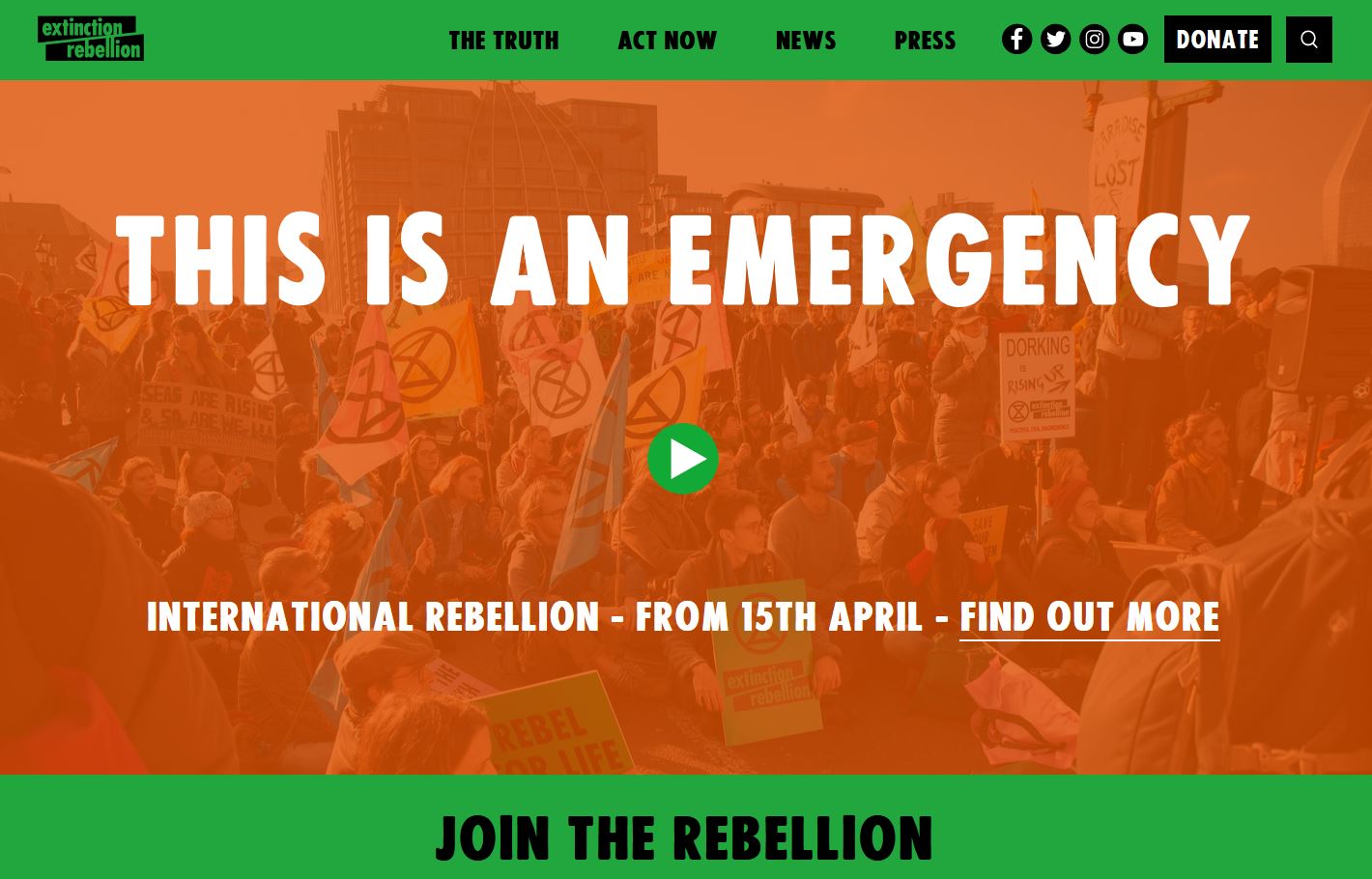
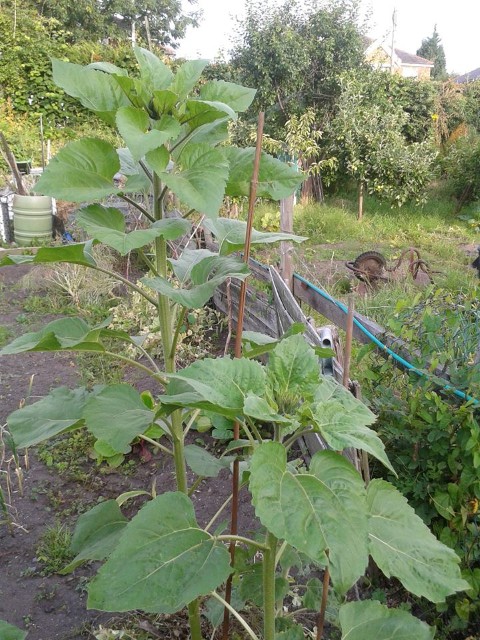
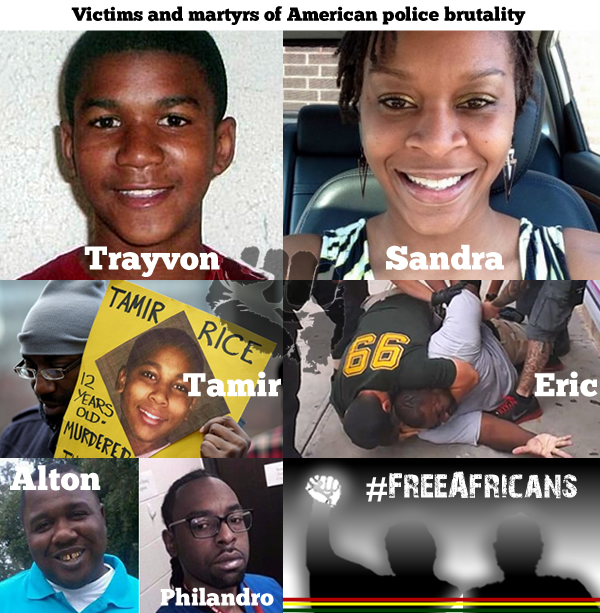
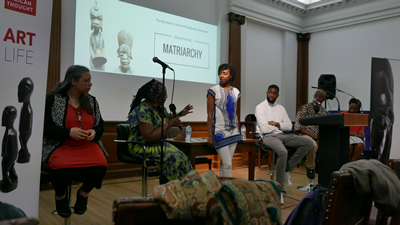
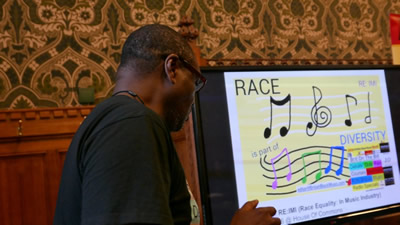
Get involved and help change our world